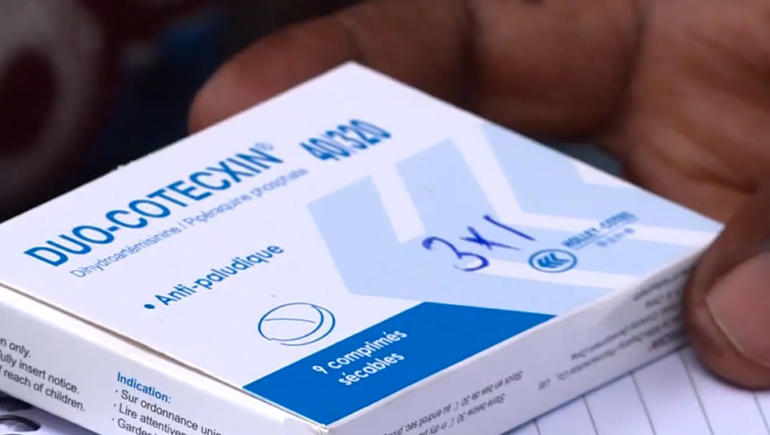A drug made in China is proving to be a critical tool in fighting a disease thousands of kilometers away.
Health workers in Uganda are using the drug to treat a surge in malaria cases.
CGTN’s Hillary Ayesiga reports.
Sereda Kyazike has been diagnosed with malaria- a disease she believes she acquired from mosquito bites. She’s complaining of joint pains and headaches.
“I have been using herbal medicine as an anti-malaria drug, but I am still not feeling well,” she said. Doctors have prescribed a Chinese anti-malaria drug called Duocotexin.
“Usually the response is very quick, after the first three tablets on the first day the patients are already feeling better they just have to complete their drugs,” said Apollo Ahimbisibwe a doctor.
But the drug is costly for an average Ugandan. Health providers want the government to subsidize the cost of the drug to make it more accessible. The Ugandan government has rolled out indoor residue spraying in Malaria prone areas.
They are also encouraging the population to drain waterlogged areas that act as breeding grounds for mosquitoes.
Besides medication, health workers here are encouraging locals to sleep under mosquito treated nets to avoid insect bites. They believe this method could help keep the disease at bay.
With these measures, they hope to reduce the rate of malaria in the country.
Xi Chen discusses malaria outbreaks in Africa
CGTN’s Elaine Reyes spoke with Xi Chen of the Yale School of Public Health, about malaria outbreaks in Africa.
 CGTN America
CGTN America
